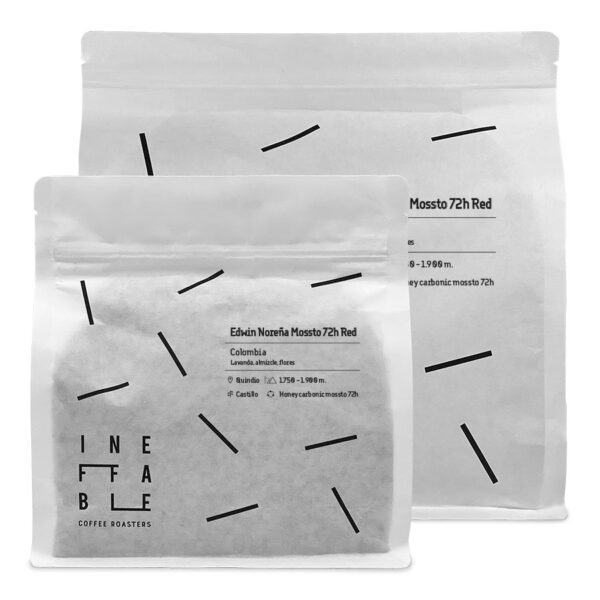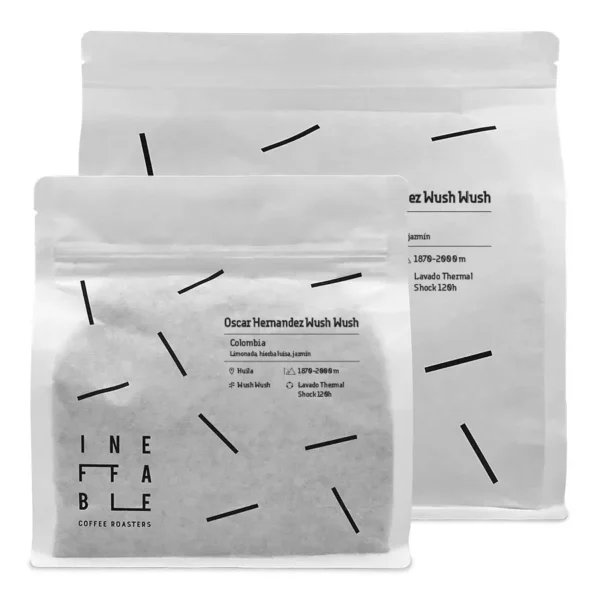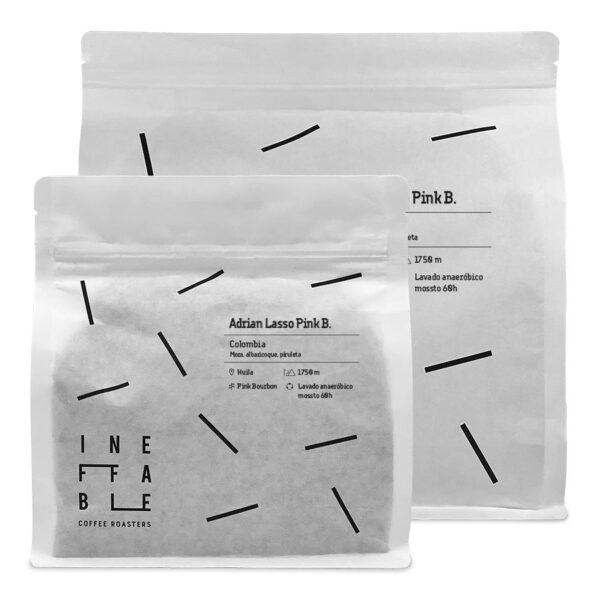Kenyan coffee occupies a prominent place in the world of specialty coffee thanks to its vibrant sensory profile, its bright acidity and its complex fruity nuances. Recognized for its exceptional quality, this coffee has conquered palates around the world, becoming an obligatory reference for baristas, roasters and lovers of good coffee.
1. History of Coffee in Kenya
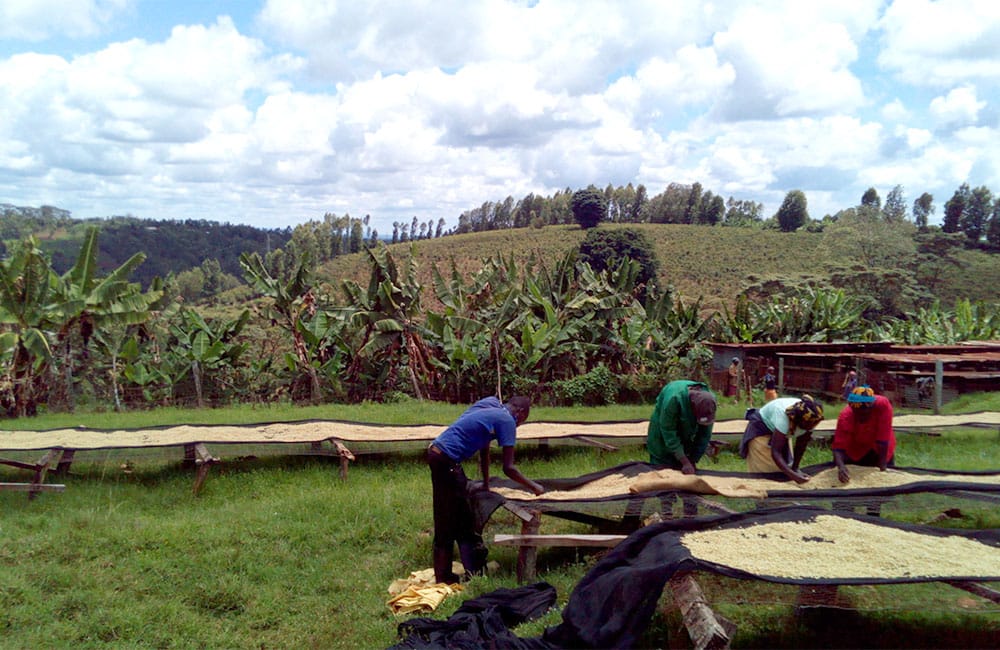
Kenyan coffee has a long and deep-rooted history
The Coffee Research Institute (CRI) has played a crucial role in the development of resistant and high quality varieties, while the Nairobi Coffee Exchange (NCE) is responsible for regulating marketing, ensuring the transparency and quality of exported coffee.
2. Main Coffee Growing Regions of Kenya
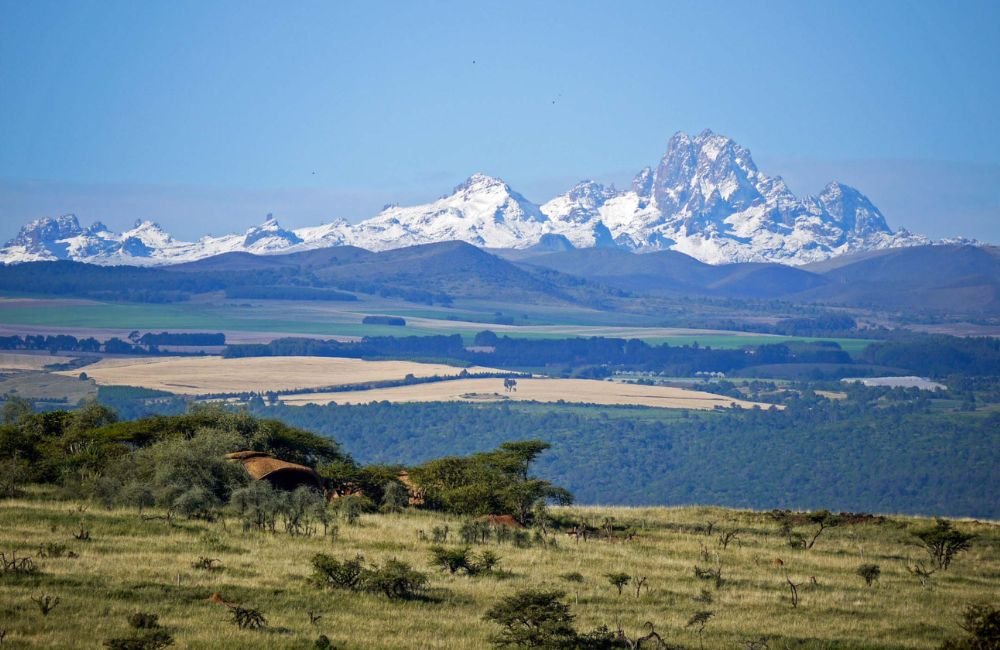
Kenya is an ideal place for the cultivation of specialty coffees.
Región del Monte Kenia y la Cordillera de Aberdare
Nyeri: Conocida por su acidez brillante y notas a grosella negra.
Kirinyaga: Destacada por su complejidad frutal y equilibrio.
Embu y Meru: Regiones emergentes con perfiles florales y dulzura intensa.
Región Occidental
Monte Elgon: Cafées con notas a frutos rojos y acidez media.
Valle del Rift Oriental: Caracterizado por perfiles más especiados y afrutados.
Estas regiones, situadas entre 1.400 y 2.000 metros sobre el nivel del mar, cuentan con suelos volcánicos ricos en nutrientes y un clima ideal para el cultivo de café de alta calidad.
3. Main Varieties of Kenyan Coffee
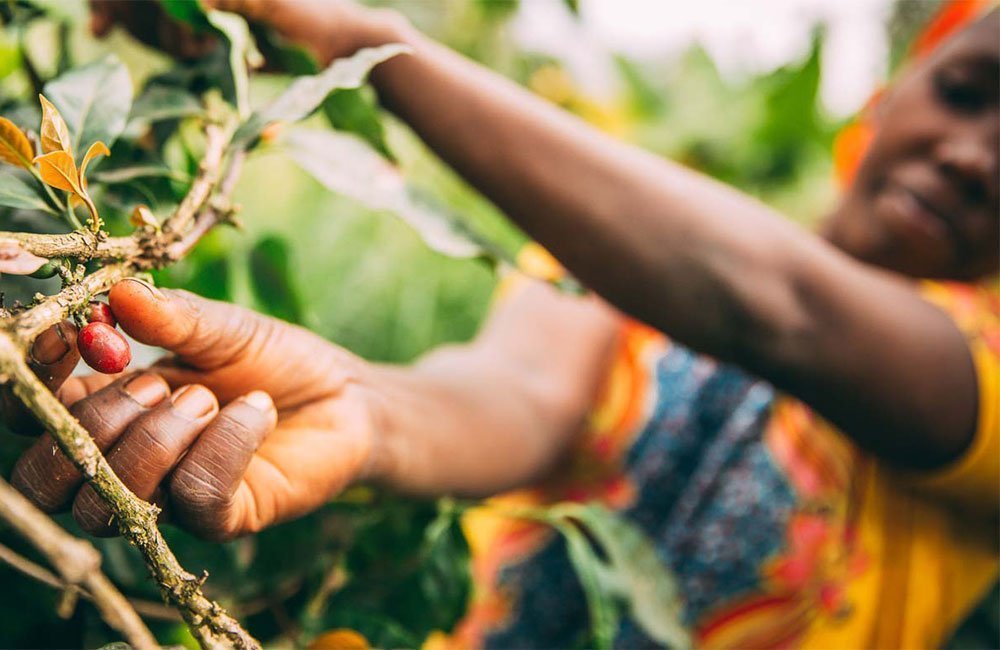
Manual harvesting of Kenyan specialty coffee
SL28 and SL34: Iconic varieties for their vibrant acidity and notes of berries.
Ruiru 11 and Batian: More disease resistant varieties, with sweet and balanced profiles.
Other varieties: K7, French Bourbon, and Peaberry, known for its concentrated flavor.
These varieties provide a diversity of sensory profiles that make Kenyan coffee a unique experience in each cup.
4. Methods of Coffee Cultivation and Processing in Kenya
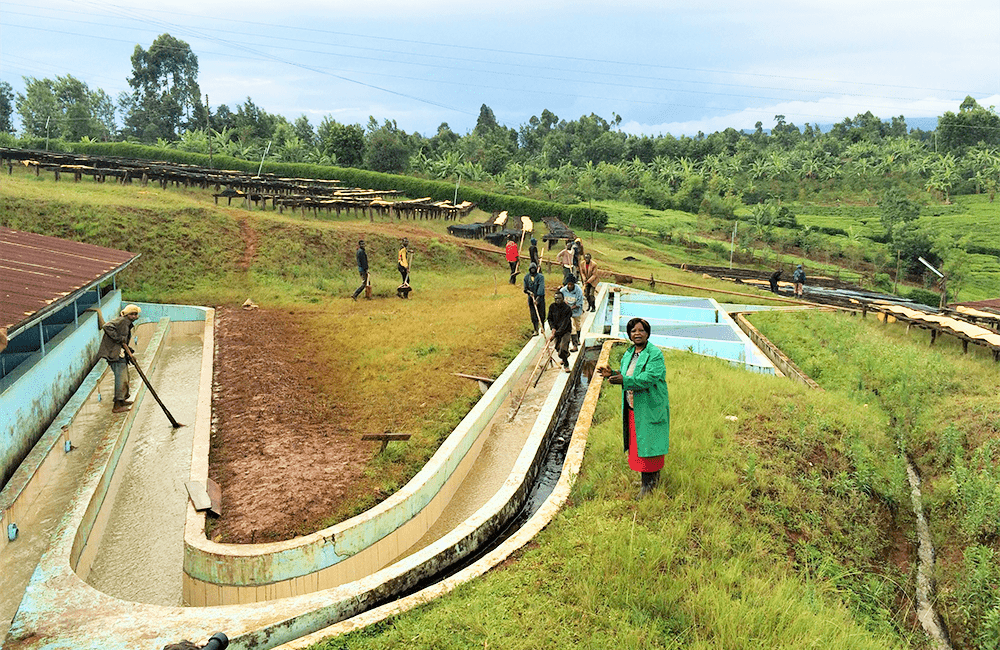
Coffee washing station in Kenya
Cultivation
Cultivation is predominantly in small family farms, organized in cooperatives that manage processing and marketing.
Processing
Washing method: Highlights acidity and clarity of flavors.
Dry fermentation: Intensifies fruit nuances.
Natural processing: Less common, but growing for specialty lots.
Double fermentation: Adds complexity and spicy notes.
5. Kenyan Coffee Harvesting Season
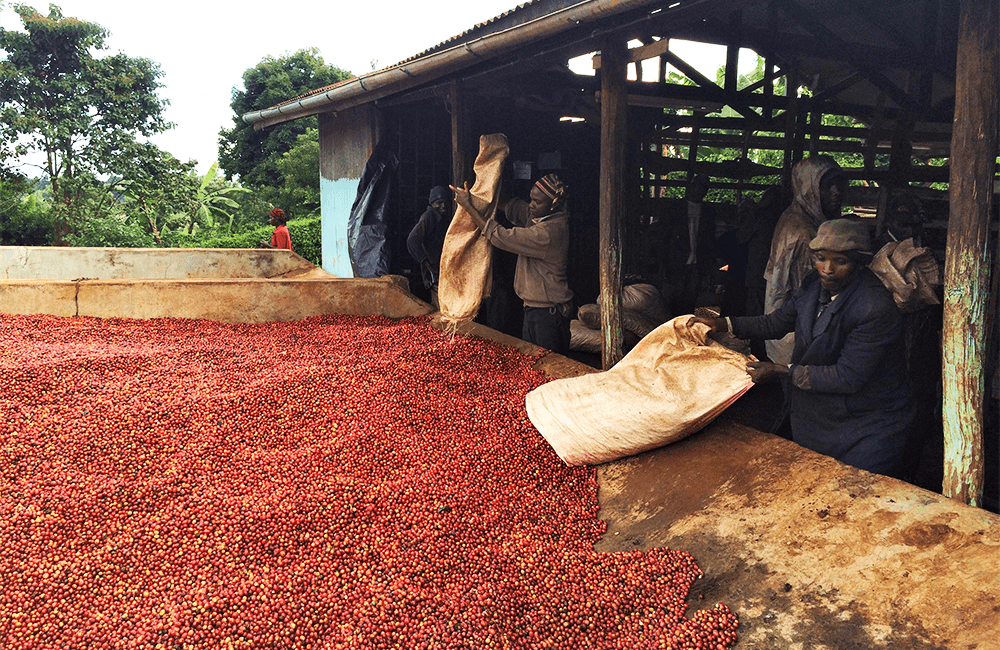
Specialty Coffee Harvest Season in Kenya
The main harvest takes place between October and December, with a second, smaller harvest from May to July. Climatic variations influence the final quality of the grain, with dry periods having a greater concentration of sugars in the cherries.
Enjoy our seasonal coffee, visit our store.
- Filter & EspressoCold BrewSpecial process
Edwin Noreña Red – Colombia – Mossto 72h Co-fermented
36,00€ – 132,00€ VAT included - Filter & Espresso
Oscar Hernandez Wush Wush – Colombia – Thermal Shock
36,00€ – 132,00€ VAT included - Filter & EspressoCold BrewSpecial process
Adrian Lasso Pink B. – Colombia – Washed anaerobic 60h
23,00€ – 84,00€ VAT included
6. Main Producers, Cooperatives and Washing Stations
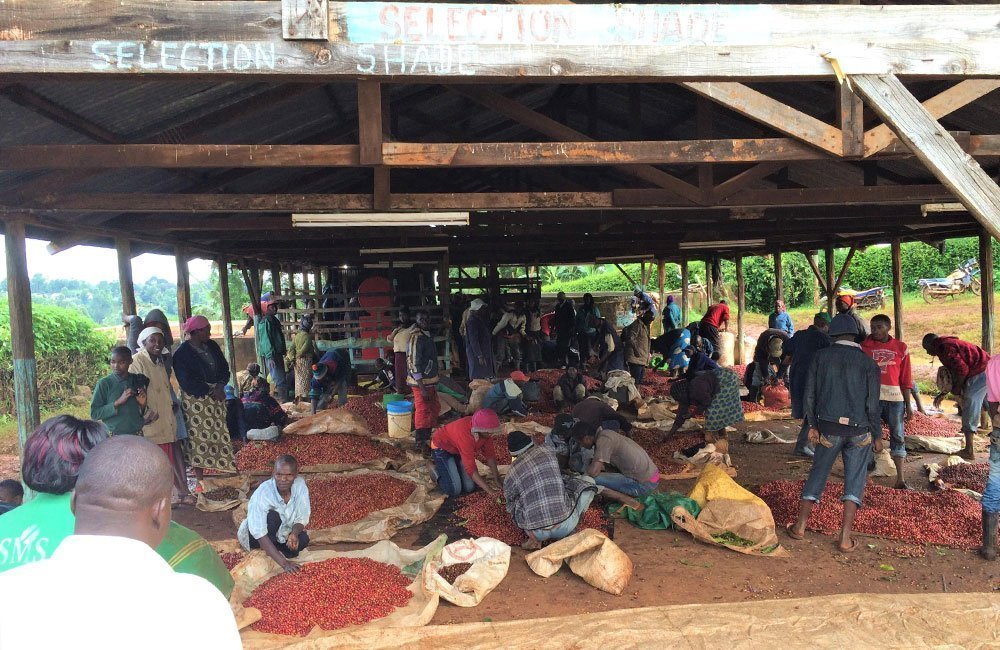
Small-scale specialty coffee producers in Kenya
Notable cooperatives: Kianderi, Kangunu, Mutira Farmers’ Cooperative Society.
Famous washing stations: Gatomboya, Ndaroini, Karimikui.
Nairobi Coffee Exchange: Key platform for marketing high quality coffee.
Kenya Coffee Flavor Profile
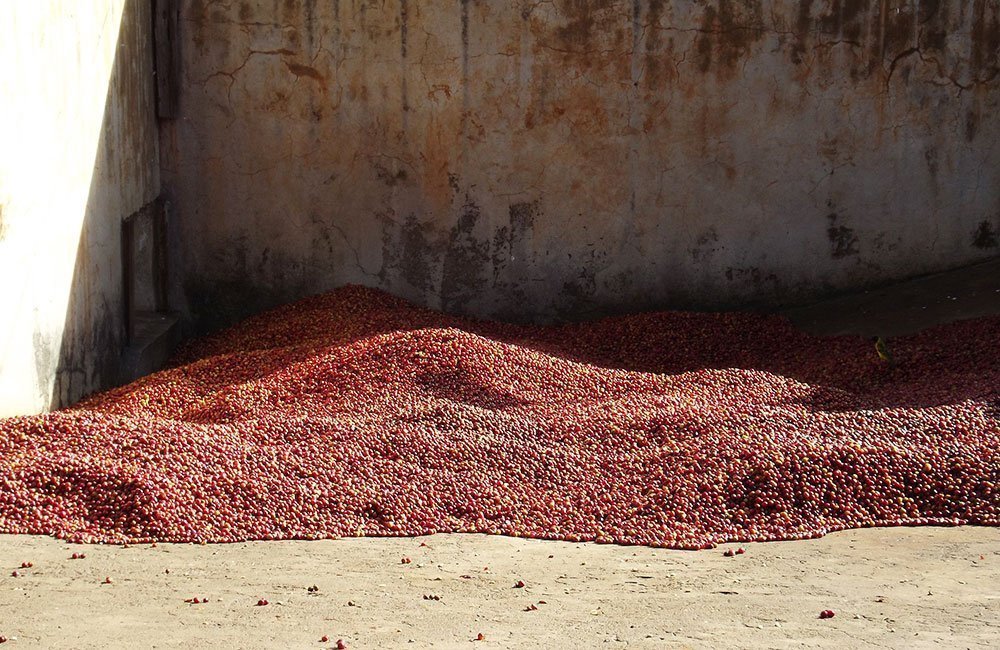
Freshly harvested Kenyan coffee
Kenyan coffee is known for its:
Bright acidity: similar to citrus fruits or red wine.
Fruity notes: Black currant, red fruits, grape, citrus.
Body: Medium to full, with a juicy and persistent texture.
Aroma: Floral, spicy and complex.
8. Curiosities about Kenyan Coffee
Why is Kenyan AA coffee so highly valued? Because of the size of the bean and its intensity of flavor.
The auction system: Key to maintaining high quality standards.
Traditional Uses: Also used in folk medicine and as a natural insect repellent.
Frequently Asked Questions:
What is the best coffee in Kenya? It depends on personal taste, but Nyeri and Kirinyaga are highly appreciated.
Why is Kenyan coffee so expensive? Because of its quality, auction system and international demand.
9. Economic Impact of Coffee in Kenya
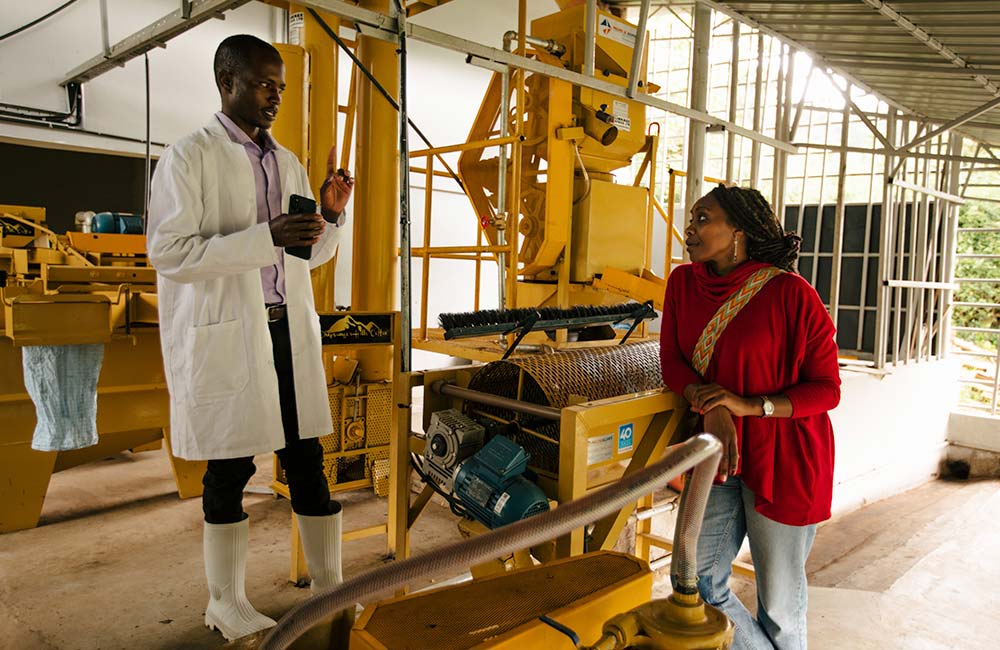
Specialty coffee processing station in Kenya
Coffee represents an important part of the Kenyan economy:
Employment generation: more than 6 million people depend on coffee.
Exports: Third most exported product in the country.
Challenges: Climate change, price fluctuations and sustainability.
Conclusion: The Legacy of Kenyan Coffee in the World of Specialty Coffee
Kenyan coffee is not only a product of exceptional quality, but also a reflection of the history, culture and passion of its producers. Its legacy in the world of specialty coffee is marked by its unmistakable flavor and its contribution to Kenya’s economy and identity. Each cup tells a story of tradition, innovation and dedication to the art of coffee.


